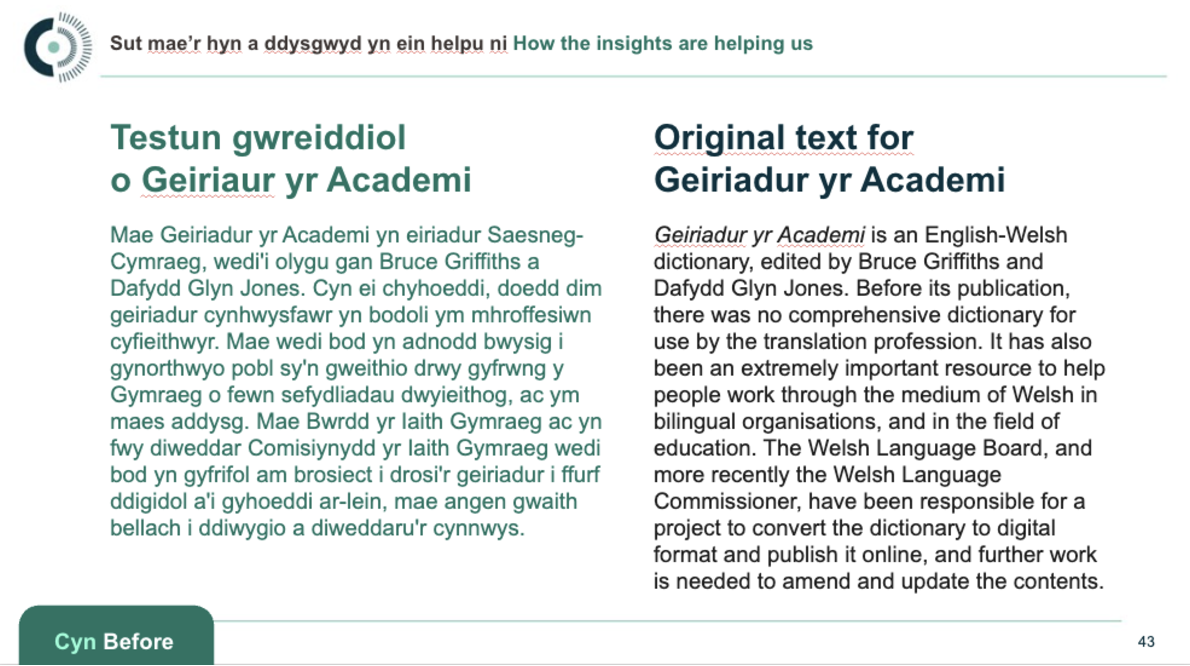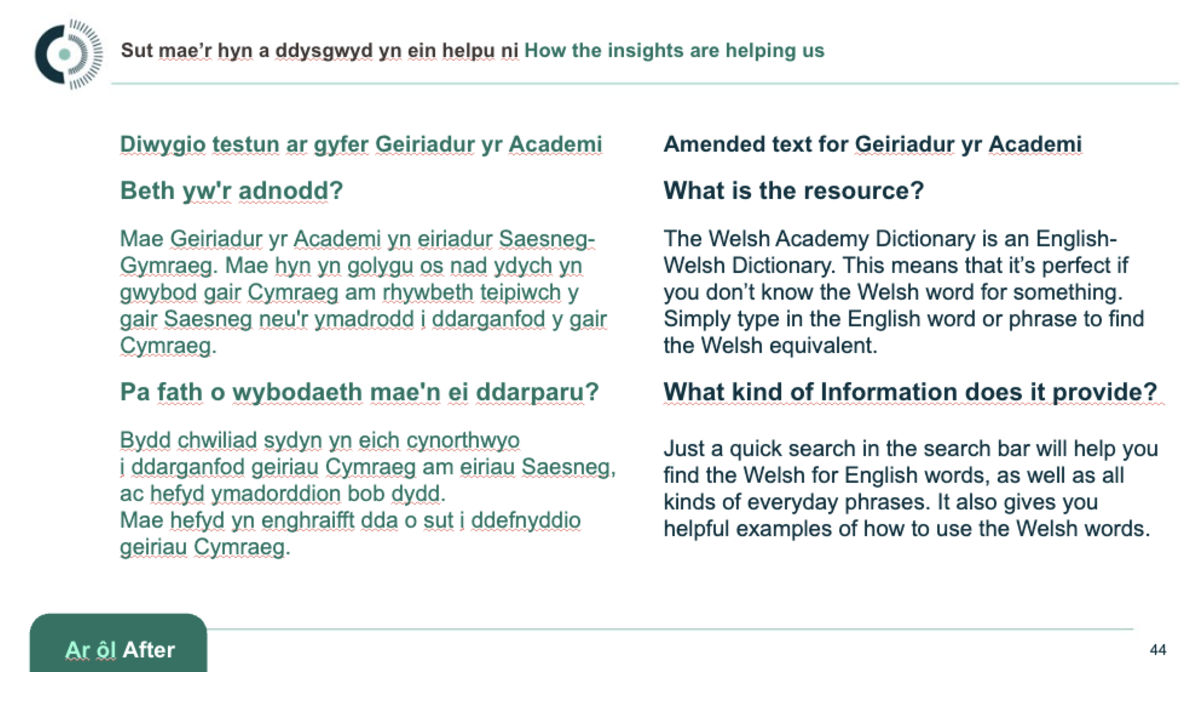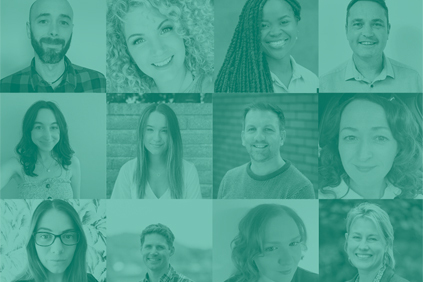Background
When we speak of ‘linguistic infrastructure’, we mean the resources which help us use the Welsh language from day to day, such as dictionaries, terminology resources and corpora. There are several resources available online, but it’s not always obvious which is the most appropriate one, and we can find ourselves jumping from one website to another to find a word or term.
Our idea was to create a central website to make it easier for everyone to know which resources fit their needs and how to use them.
Testing with users on our proposed new website was something we wanted to do, but we weren’t sure how to go about it. Then a colleague told us that CDPS could help us with this sort of thing and put us in contact with Joanna Goodwin (Head of User-Centred Design).
User testing
The first session with Jo really stands out for me. Even though we had the idea of creating a website, Jo made us go back to the very beginning and asked the fundamental questions such as ‘What’s the current situation with Welsh language resources? What are the barriers now? And why we thought a website would solve these problems. This made me realise that we have a lot of assumptions, and having a neutral perspective from someone outside our team meant we had to explain our ideas and work from scratch, which is a useful exercise in itself.
Our first session was two hours long, but it was the fastest two hours ever and flew by! I was also very impressed with the Miro board we used in that session to note and share ideas.
I sat in on one of the one-to-one sessions Yana (User Researcher) did and saw the user navigate online resources in real time on screen. This made me realise why user-testing is so important. We can try to imagine all we like, but nothing compares to seeing a user test the resource in a live situation.
Learnings
One thing I learned from working with CDPS, which will definitely stick with me, is that you can never assume you know what other people think or do. We all come from different backgrounds and have different life experiences, but unless you actually ask a person about their thoughts or habits, never assume you know what they think or how they would act in a particular situation.
I also learned more from our collaboration, like how important it is to sometimes ask yourself those basic questions like ‘What’s the problem?’.
The research findings have changed the way we’re now going to approach the whole exercise, and we never would have reached this situation without CDPS.
What’s next
The way we’re now drafting our website has completely changed as a result of CDPS’s research with non-Welsh speaking parents. The research showed that getting the correct answer as fast as possible was the ultimate goal for this group of users, and the background information really wasn’t a priority. We have totally transformed the way we draft our website pages as a result.
Here is an example:


On a broader level, it has shown me how important user-testing is and that it’s worthwhile spending a bit of time doing it. It’s definitely something I’ll try to do with future projects.
Our first few sessions together really made us think about why we’re doing what we’re doing and nailed down exactly the parameters of the research. Once we had established that the research would target non-Welsh speaking parents, the one-to-one sessions Yana held were really impressive. The research findings actually go beyond the work of our team and our website, and touches on a lot of other fields of work e.g. education and schools, language transmission and technology. CDPS did a great show and tell session with our division on the research findings, and I’m sure everyone took something away from that session.
It’s been a pleasure working with the team at CDPS – diolch.
– Sara Mitchell, Linguistic Infrastructure and Place-names Coordination Officer
Joanna Goodwin, Head of Delivery and User Centred Design reflected on the project:
“I get so excited when teams first see the benefits of introducing user centred design in their work. It has been great to work with the linguistic team at Welsh government and be on this journey with them. They have some fantastic projects and we are excited how we can help them ensure these products meet the needs of their audience.”
